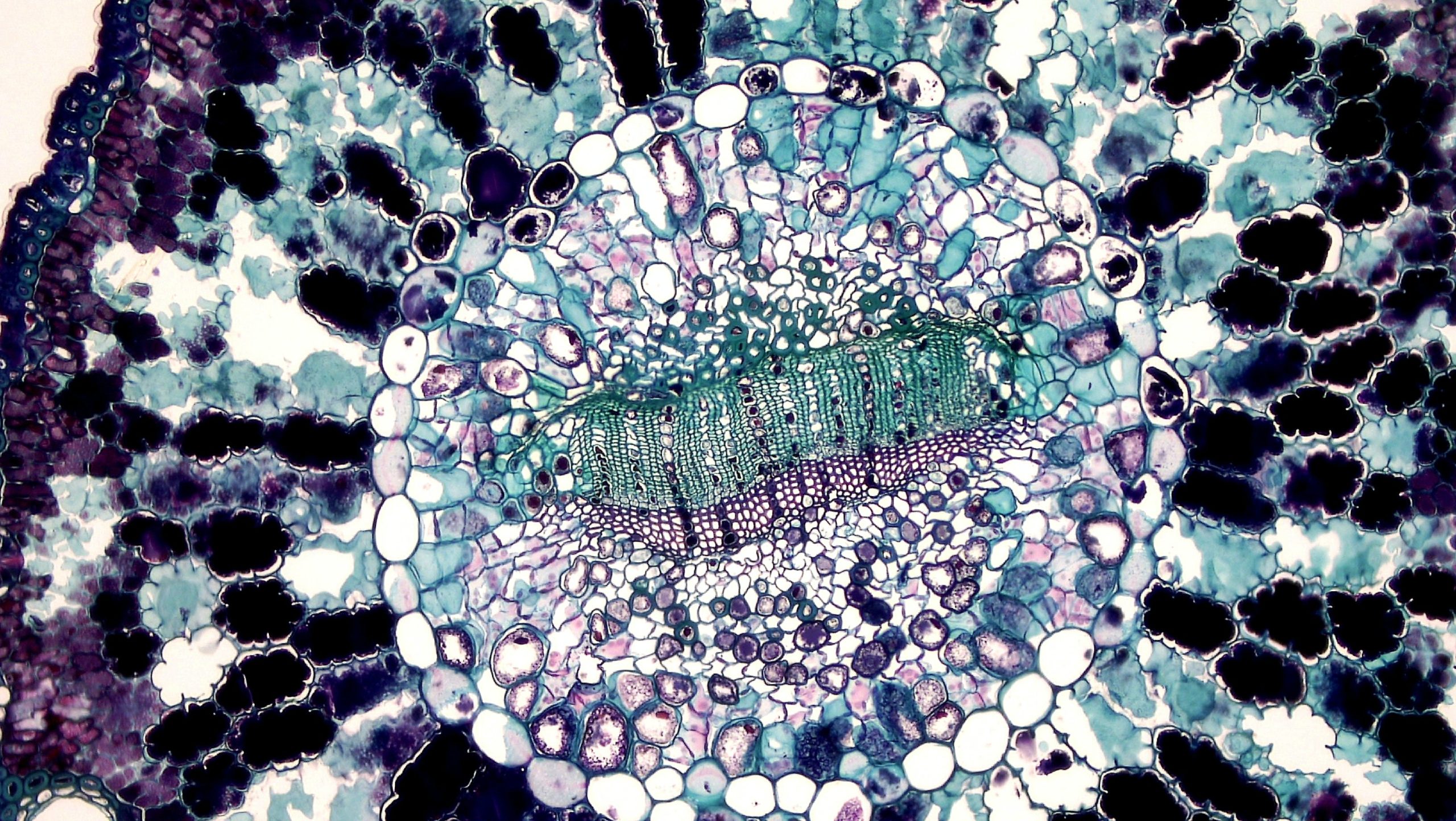Jordi López Ortega*
DOI: doi.org/10.53368/EP66CEPBdvb06
Resumen: La actual gran extinción de especies se debe a la destrucción de hábitats y ecosistemas. El COVID-19 puso de manifiesto falsas seguridades; creer que basta mejorar las reglas existentes es negar la realidad. Las ciencias del sistema terrestre nos enseñan que estamos hiperconectados, y la nueva biología destaca la relevancia de la transmisión horizontal de información de las «bibliotecas genéticas». La evolución no se basa en «mutaciones aleatorias» de individuos, sino que se debe a la simbiosis entre distintos reinos. La conservación de individuos sin entender la complejidad de la biosfera ofrece resultados decepcionantes. Hay voces que cuestionan que se preserve la biodiversidad si nos deshacemos de «bibliotecas de opciones genéticas», eliminamos el «ADN basura» y provocamos una masiva extinción de «especies exóticas invasoras».
La comunidad científica está entusiasmada con la edición genética: promete desde «ganancias funcionales» biológicas hasta preservar la biodiversidad. No tiene en cuenta el papel de «genes recesivos» en «mutaciones aleatorias», al preferir la homogeneidad de genes a una cadena interminable de interacciones. Expresamos en el artículo estupor que la tecnología CRISPR, que empobrece el acervo genético acumulado durante millones de años.
Palabras clave: biodiversidad, ADN basura, extinción, CRISPR-Cas9, ETC Group
Abstract: The current great extinction of species is due to the destruction of habitats and ecosystems. Covid-19 revealed false assurances; believe that it is enough to improve the existing rules is denying reality. Earth system sciences teach us that we are hyperconnected and the new biology highlights the relevance of the horizontal transmission of information from «genetic libraries.» Evolution is not «random mutations» of individuals, but is due to symbiosis between different kingdoms. The conservation of individuals, without understanding the complexity of the biosphere, offers disappointing results. There are voices that question preserving biodiversity by getting rid of «genetic options libraries» by eliminating «junk DNA» and with a massive extinction of «invasive exotic species».
The scientific community is excited about gene editing: it promises everything from biological «functional gains» to preserving biodiversity. It does not consider the role of «recessive genes» in «random mutations», preferring the homogeneity of genes than an endless chain of interactions. In the article we expressed surprise that CRISPR technology impoverishes the genetic pool accumulated over millions of years.
Keywords: biodiversity, junk DNA, extinction, CRISPR-Cas9, ETC Group
Introducción
La perspectiva de la capacidad de preservar especies amenazadas es deprimente (ONU, 2023; IPBES, 2023). Los biólogos evolucionistas, que guían las «estrategias conservacionistas» (IUCN, 2023), prefieren visiones «homogéneas de genes». No basta con proteger, conservar, hacer un uso sostenible y, cuando no se pueda, compensar; como si restaurar no fuese posible (Pauli, 2019). La teoría darwinista explica la evolución a partir de «mutaciones aleatorias» y «selección natural» de aquellos individuos que logran «ganancias monstruosas» (Weizsäcker y Wijkman, 2019).
La simbiogénesis ofrece un enfoque más matizado que apelar a factores exógenos: un virus o la zoonosis causante del COVID-19 (López Ortega, 2022b). La sociedad busca una salida a las desgarradoras emergencias a partir del pensamiento sistémico (López Ortega, 2023). Para la simbiogénesis no hay causas aisladas, sino una cadena interminable de interacciones. La transmisión horizontal de información, gracias a la simbiosis entre organismos, es lo que favorece «mutaciones recesivas» gracias a «genes recesivos» que permanecen ocultos bajo los aleros dominantes, protegiendo a las especies de la «selección natural» (López Ortega, 2022a).
Andreas Wagner (2019) ha señalado la importancia de las «bibliotecas de opciones genéticas» acumuladas a lo largo de millones de años. Biólogos evolutivos, basándose en un perjuicio darwinista, consideran que el «acervo genético» es un inconveniente: «ADN basura». La «homogeneidad de genes» nos hace menos resistentes, mientras que los «genes recesivos» son un seguro ante desafíos imprevistos. La edición genética CRISPR se postula como tecnología que puede revertir la destrucción de los ecosistemas y la pérdida de biodiversidad (Breed et al., 2019). El artículo señala los riesgos de este tipo de intervenciones (ETC Group, 2019; Weizsäcker y Wijkman, 2019).
Diagnóstico de la pérdida de biodiversidad
La Unión Internacional para la Conservación de la Naturaleza (IUCN, por sus siglas en inglés) ha calculado que existen más de 42.100 especies amenazadas de extinción. La Plataforma Intergubernamental Científico-Normativa sobre Diversidad Biológica y Servicios de los Ecosistemas (IPBES, 2023) advierte de la necesidad de reforzar la biodiversidad y los servicios de los ecosistemas. La conservación de la biodiversidad se basa en hacer un uso sostenible de la biodiversidad biológica, «soluciones basadas en la naturaleza» (nature based solutions), etc. Son estrategias que se han mostrado, todas ellas, insuficientes, pues desaceleran la velocidad de esta extinción causada por nuestra civilización, pero no la revierten (Pauli, 2019).
Las evaluaciones regulares del conocimiento científico sobre la biodiversidad y los servicios de ecosistemas permiten elaborar y aplicar políticas priorizando recursos. Unos de los peligros para la biodiversidad que cobran relevancia es el peligro de las llamadas «especies exóticas invasoras». Hay 3.500, según la más exhaustiva evaluación llevada a cabo hasta ahora, y presentada en octubre de 2023 por la IPBES (2023). Este informe calcula que el 60 por ciento de la pérdida de biodiversidad es causada por las «especies invasoras».
La nueva biología adopta una perspectiva de la biodiversidad menos estrecha: las especies individuales no se pueden contemplar de forma aislada, sino dentro de relaciones simbióticas con otras especies a partir de unas interminables relaciones causales. No existen efectos aislados. La simbiogénesis adopta, como vimos en la introducción, un enfoque más complejo que el darwinista, que entiende los virus exclusivamente como patógenos: la enfermedad reducida a una causa exógena (López Ortega, 2023). Los virus permiten la transmisión horizontal de la información genética; no son nuestros enemigos, sino que establecemos relaciones simbióticas con ellos (López Ortega, 2022a).
El informe de los progresos de los ODS de Naciones Unidas, basado en el consenso científico, ofrece una perspectiva desoladora respecto a la velocidad que adopta la extinción de especies (ONU, 2023). Aun poniendo la mejor de las intenciones, no mejora. Se calcula que en 2050 se habrá perdido el 90 por ciento de los arrecifes. En ellos habita una cuarta parte de la biodiversidad terrestre. Hemos perdido en los últimos treinta años la mitad de las «selvas submarinas», que en el pasado constituían una biomasa superior a la de los bosques terrestres (Pauli, 2019). De ellos depende la vida en la Tierra, protegen la costa de los temporales y ofrecen innumerables servicios ambientales.
¿Erradicar especies invasoras o simbiogénesis?
El informe IPBES (2023) declaró la guerra a las «especies alienígenas» o «especies exóticas invasoras». El COVID-19, considerado desde la perspectiva de zoonosis, puso el dedo en el control de invasiones biológicas. El origen animal del COVID-19 es un misterio sin resolver (López Ortega, 2022b). Reducir la diversidad biológica para preservar la biodiversidad puede ser tan irresponsable como eliminar el «ADN basura» reduciendo el «acervo genético», que contiene un número ingente de «mutaciones recesivas» cuyas funciones no alcanzamos a comprender. Tenemos tecnología CRISPR, que permite cortar y modificar el ADN y que llena a la comunidad científica de optimismo sobre posibles intervenciones en salud, agricultura, conservación de ecosistemas e investigación básica. Jürgen Habermas (2002) advierte sobre emprender un trayecto sin paradas en la instrumentalización de la vida.
Las «enormes bibliotecas de opciones genéticas» son un aspecto de la biodiversidad que hay que preservar y solo notables excepciones les han prestado atención (Wagner, 2019). La IUCN (2019) propuso la «biología sintética», basada en «ganancias funcionales» gracias a cortar y modificar el ADN, para la conservación de la biodiversidad. La «edición del genoma» ofrece soluciones a amenazas actualmente irresolubles a la biodiversidad; aquellas causadas por enfermedades y por «especies exóticas invasoras». Mientras la comunidad científica está fascinada por su enorme potencial, hay voces críticas como la de ETC Group, que advierte de sus riesgos existenciales (Weizsäcker y Wijkman, 2019).
ETC Group hizo una revisión de los autores del informe de la IUCN, en favor de la «biología de síntesis», y encontró en la mayoría conflictos de interés y fuertes sesgos en favor de impulsores genéticos que no fueron revelados por la IUCN (ETC Group, 2019). Algunos de ellos participan en el consorcio GBIRd (en inglés, Grupo de Biocontrol Genético de Roedores Invasivos), que propuso liberar impulsores genéticos en roedores exterminadores de aves; pero esa urgencia repentinamente se enfrió y no fueron liberados. ETC Group ha denunciado que la industria de la biotecnología influye perversamente en los Convenios sobre Biodiversidad (CDB) para eliminar la moratoria de la edición del genoma (ETC Group, 2023). Critica el Bezos Earth Fund, que busca proteger el 30 por ciento de la tierra y de los océanos con la polémica política «30×30», que supondría el mayor «despojo de tierra», ya que no oculta su intención: «Convertir la Tierra en un parque nacional». Sigue la senda de Edward O. Wilson, que quiere la mitad del planeta sin seres humanos.
La nueva biología conoce algo mejor cómo los «genes recesivos», ante la pérdida de población de una especie, estos genes que habían permanecido ocultos, se vuelven visibles y propician «mutaciones recesivas» a partir de lo que se considera «ADN basura». Esto permite hacer frente a múltiples desafíos: climático, nuevos parásitos, periodo de sequía y contra la «selección natural». Suprimir el «ADN basura» impide la resiliencia de las especies. Este era visto erróneamente como un inconveniente. En el caso de que la «edición del genoma» nos permita desprendernos de ese «ADN basura», la respuesta adaptativa y resiliente ante enfermedades se vería comprometida.
ETC Group (2019) califica de temeraria la «edición del genoma». Liberar una mosca con impulsores genéticos basados en CRISPR permite la extinción del mosquito involucrado en la transmisión de la malaria. Hay «especies invasoras» de las que depende la vida de comunidades indígenas, como es el caso de las plantas depuradoras. La lucha contra las especies invasoras hace que el hecho de que tengan efectos positivos no sea un argumento para su indulto. No se pueden tratar a la ligera los dilemas bioéticos. Gunter Pauli (2019) se sorprende de que el jacinto de agua, con su enorme multifuncionalidad, esté en la lista de plantas invasoras.
Conclusión
Los biólogos darwinistas conceptualizan la evolución, exclusivamente, en términos de «selección natural», «mutaciones aleatorias» y «monstruosas ganancias». En este esquema no hay sitio para la colaboración entre especies. Unas ganan y otras pierden. En la nueva biología, en cambio, existe una colaboración entre los cinco reinos (López Ortega, 2022a). Los virus no son enemigos, sino potenciales transmisores de información horizontal que favorecen «mutaciones recesivas». Necesitamos entender que las especies no tienen una existencia acabada y comprender su devenir (Steiner, 2019). Los aprendices de brujo pueden jugar con los dados de las mutaciones aleatorias, pero no con fuerzas formativas que se encuentran ocultas tras los aleros dominantes: genes recesivos.
El acervo genético acumulado durante millones de años es la otra biodiversidad silenciada e ignorada que tenemos que preservar (López Ortega, 2022b). Aunque la comunidad científica está fascinada con las oportunidades que brinda la «edición del genoma», ya sea para erradicar insectos que transmiten enfermedades, plagas agrícolas o especies invasoras (Chennuri et al., 2022), las experiencias de liberar impulsores genéticos, individuos con ADN manipulado, para exterminar una determinada especie son más una promesa de futuro que una realidad.
La «edición genética» es una industria que, en cambio, capta miles de millones de dólares en investigación. Si vemos las enormes pérdidas, valoradas en 150.000 millones de dólares, que ocasionan a la economía mundial las especies invasoras, resulta poco dinero; si nos atenemos a los resultados, es demasiado. Sus defensores tienen expertos con capacidad para influir en los Convenios de Biodiversidad de Naciones Unidas o en informes de la IUCN. Es una burbuja biotecnológica que se autoalimenta (López Ortega, 2018).
Jürgen Habermas señaló, hace dos décadas, las dificultades de distinguir entre fantasías temerarias de chiflados y pronósticos dignos de tomarse en serio (Habermas, 2002). Resultan relevantes las advertencias de ETC Group (2019) sobre cómo la biotecnología es capaz de modelar una agenda internacional ambiental con dos riesgos paradójicos: reducir especies y acervo genético en nombre de su conservación.
Referencias
Breed, M. F., et al., 2019. «The potential of genomics for restoring ecosystems and biodiversity». Nature Review Genetics, 20, pp. 615-628. Disponible en: https://doi.org/10.1038/s41576-019-0152-0.
Chennuri, P. R., et. al, 2022. «Genetic Approaches for Controlling CRISPR-based Autonomous Homing Gene Drives», Frontiers in Bioengineering Biotechnology, 10. Disponible en: https://doi.org/10.3389/fbioe.2022.897231.
ETC Group, 2019. «Impulsores genéticos: malas influencias». Disponible en: hhttps://www.etcgroup.org/sites/www.etcgroup.org/files/files/etc-uicn_driving-influence_spanish-rev2020.pdf
ETC Group, 2022. «Bezos y Gates en las lonas». Disponible en: https://www.etcgroup.org/es/content/bezos-y-gates-en-las-lonas.
Habermas, J., 2002. El futuro de la naturaleza humana: ¿hacia una eugenesia liberal? Barcelona, Paidós.
IPBES, 2023. Summary for Policymakers of the Thematic Assessment Report on Invasive Alien Species and their Control of the Intergovernmental Science-Policy Platform on Biodiversity and Ecosystem Services. Bonn, IPBES Secretariat. Disponible en: https://doi.org/10.5281/zenodo.7430692.
IUCN, 2019. Genetic frontiers for conservation: An assessment of synthetic biology and biodiversity conservation. Synthesis and key messages. Gland, IUCN. Disponible en: https://doi.org/10.2305/IUCN.CH.2019.04.en.
IUCN, 2023. «100 of the World’s Worst Invasive Alien Species». Disponible en: http://www.iucngisd.org/gisd/100_worst.php
López Ortega, J., 2018. «La ampliación de las políticas de salud, ante desafíos globales emergentes». Actas del VII Congreso de la Red Española de Política Social (REPS): «Políticas sociales ante horizontes de incertidumbre y desigualdad», Zaragoza, pp. 625-649.
López Ortega, J., 2022a. «How Anthropocene Might Save the World: Metamorphosis», Social Sciences, 11 (2), 68. Disponible en: https://doi.org/10.3390/socsci11020068.
López Ortega, J., 2022b. «COVID-19: ¿zoonosis o sindemia?», Ecología Política, 62, pp. 60-64. Disponible en: https://doi.org/10.53368/EP62PCCbr01.
López Ortega, J., 2023. «A syndemic and contextual approach to COVID-19», ESA RN16, newsletter 15, «The impacts of global crises on healthcare systems: new challenges for sociological reflection», pp. 18-21. Disponible en: https://www.researchgate.net/publication/373545190_Risk_trust_around_COVID-19_vaccination_the_influence_of_the_media_in_Portugal_p_12_In_ESA_RN16_Newsletter_n_11_-_Special_Issue_The_Challenges_of_COVID-19_global_health_and_inequality
ONU, 2023. «Progress towards the Sustainable Development Goals: Towards a Rescue Plan for People and Planet. Report of the Secretary-General». Disponible en: https://hlpf.un.org/sites/default/files/2023-07/SDG%20Progress%20Report%20Special%20Edition.pdf
Pauli, G., 2019. Seamos tan inteligentes como la naturaleza. Barcelona, Tusquets.
Steiner, R., 2019. Introducción a las obras científicas de Goethe. Madrid, Editorial Rudolf Steiner.
Wagner, A., 2019. Life Finds a Way: What Evolution Teaches Us About Creativity. Nueva York, Basic Books.
Weizsäcker, E. U., y A. Wijkman, 2019. Come on! Capitalismo, cortoplacismo, población y destrucción del planeta. Barcelona, Deusto.
—
* Universitat Politècnica de Catalunya (UPC). E-mail: jordi.lopez.ortega@upc.edu.
—







